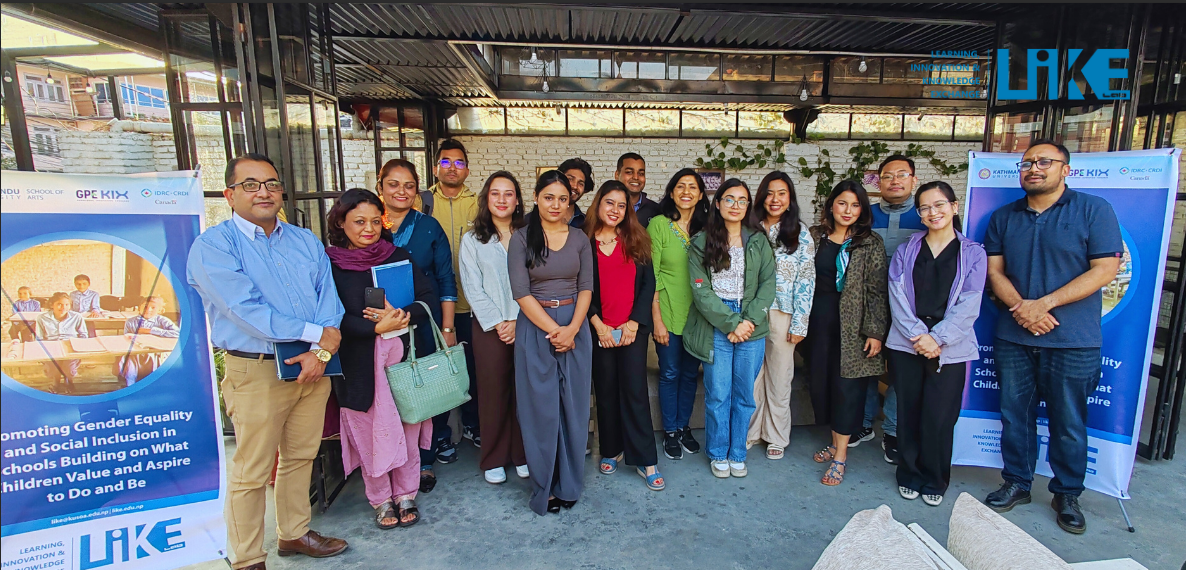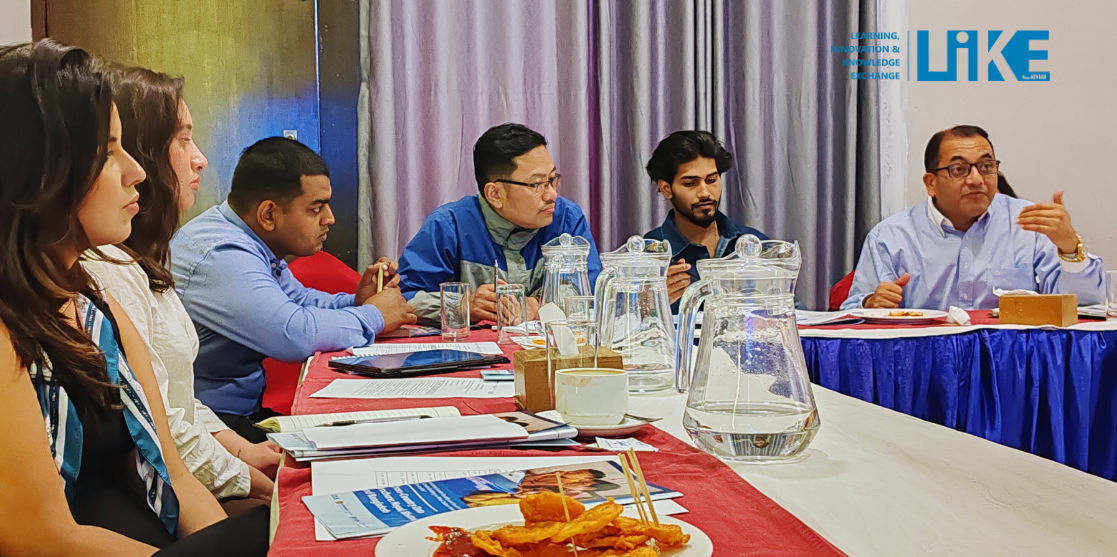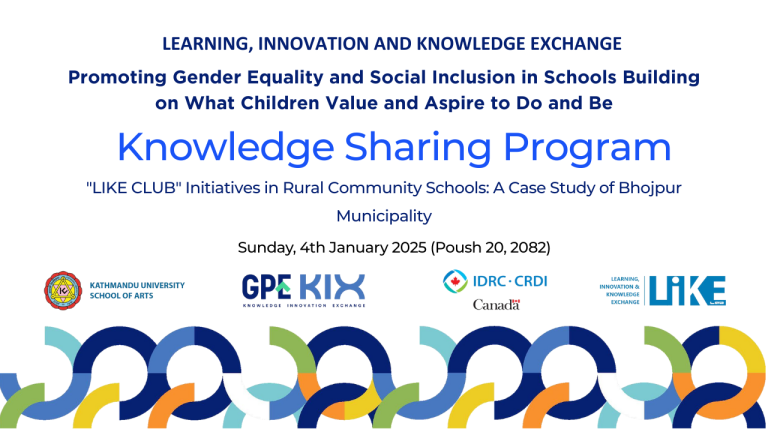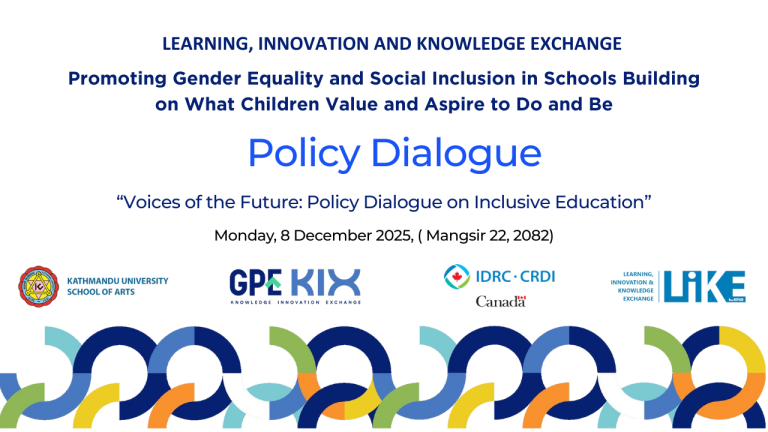
KATHMANDU, NEPAL, MAY 2nd, 2025 – A Knowledge Exchange Program titled “Strengthening GESI Among Children” was hosted by the Learning, Innovation and Knowledge Exchange (LIKE) Lab, Kathmandu University School of Arts at Entrance Café, Chakupath, Lalitpur. The session aimed to deepen understanding and application of Gender Equality and Social Inclusion (GESI) in educational research, with a particular focus on children’s lived experiences, aspirations, and well-being.
Facilitated by Anushka Shrestha, the event gathered 17 participants featuring insightful presentations by Isha Karki, Research Fellow at LIKE Lab, and Urishna Shakya, Child Safe Net.
Shrestha opened the session with an overview of the CVEC Project, underlining its participatory ethos and child-centered focus. Karki followed with a research presentation grounded in Amartya Sen’s Capability Approach, emphasizing the importance of understanding children’s well-being beyond conventional indicators. She elaborated on how children across Nepal, Bhutan, and Bangladesh co-identified core educational capabilities through innovative participatory methods such as picture ranking and peer-led activities.
Her presentation highlighted the role of intersectionality in shaping children’s educational experiences — pointing out disparities due to geography, language, gender identity, and digital access. The research called for age-disaggregated data, integration of GESI and Gender-Responsive Budgeting (GRB) in educational policy, and active involvement of School Management Committees (SMCs) and Parent-Teacher Associations (PTAs) in decision-making.
During the discussion session, participants emphasized the following points:
- The project’s strength lay in its child-led, experiential orientation, rather than focusing on academic outcomes.
- Key issues such as aligning project recommendations with municipal education plans, integrating them into teacher training, and ensuring meaningful inclusion of children with disabilities were also discussed.
In the second half, Urishna Shakya of Child Safe Net delivered a comprehensive presentation on Child Online Protection. She detailed their work in research, advocacy, and capacity building — including partnerships with platforms like TikTok and collaborations with UNICEF. Their findings underscored a generational knowledge gap and the urgent need for digital literacy, especially as AI continues to evolve.
During the discussion session, participants emphasized the following points:
- Key recommendations included age-specific digital safety tools, enhanced training for teachers, government attorneys, and community-based actors, and stronger collaboration with civil society organizations beyond urban centers.
- The need for comprehensive policy development and robust reporting mechanisms for online harms was also emphasized.
The session concluded with closing remarks from the Project Lead, Dr. Binayak Krishna Thapa and Project Coordinator, Shrestha who reiterated the critical importance of inclusive education, and transformative learning through participatory knowledge exchange.




